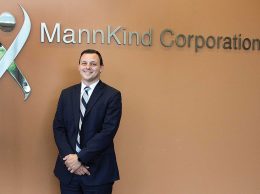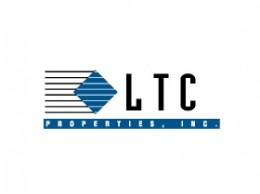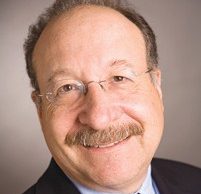Auto industry icon Dave Power shared the story of how J.D. Power and Associates became a household name synonymous with consumer research at a talk in Camarillo on Friday. When Power launched the Westlake Village-based research firm in the 1960s, he made waves in the auto industry by allowing consumers to for the first time critique — and therefore influence — the cars they were buying.
Power shared his story in a conversation with Bill Cordeiro, director of CSU Channel Islands’ Martin V. Smith School of Business & Economics. This year, the Pacific Coast Business Times will honor Power as the 2014 inductee to its Business Hall of Fame.
Before launching J.D. Power and Associates in 1968, Power spent nine years working for auto industry stalwarts such as Ford and General Motors. He found that car manufacturers weren’t building their vehicles around the wants and needs of end-consumers. The company rose to prominence on the strength of its comprehensive customer surveys, which came to revolutionize vehicle production.
In 1989, the firm awarded the first of its famed J.D. Power trophies to Acura, which had topped its Automotive Customer Satisfaction Index that year. The coveted hardware, now referenced in more than 200,000 television commercials and 2 billion print ads each year, made J.D. Power a household name for consumer satisfaction.
However, Power said while the award “really is the brand, I prefer it to be in the background.” Instead, he likes to put the research results in the spotlight.
The success of Power’s methodology allowed the firm to extend its reports to cover numerous consumer industries — including electronics, hotels, health care, utilities and finance — and it has established operations in 18 countries. J.D. Power also broadened its services, adding syndicated studies, consulting and forecasting to its core proprietary research.
Although Power sold the company to McGraw Hill Financial in 2005, J.D. Power has maintained its Westlake Village facility and still employs 200 people in Ventura County.
Power said his experience in leadership positions at four different auto firms revealed the bias inherent in the industry’s corporate market research. There were gaping holes in the results, executives weren’t getting the information they needed, and one firm couldn’t compare its results to another. Power believed there was demand for independent, third-party research.
“Before, the research suppliers didn’t have control,” he said. “The market research department reported to the sales department. Even within the company, the manufacturing people didn’t believe the results. I felt that we should start doing something dependable.”
Though J.D. Power generated most of its revenue from proprietary contracts with auto makers, its reports centered on consumers’ voices, pressuring companies to respond to their concerns.
“I saw the challenge and thought I could create more value by giving the truth to the top of the company as opposed to having it funnel through and be massaged until the day they confess,” Power said.
J.D. Power targeted Mazda owners for its first survey in 1968. According to Power, Mazda sold 100,000 of its rotary-engined vehicles in its first 18 months on the market, making the cars the fastest-growing import in the U.S. at the time.
He was determined to know what drivers thought of the new motor. Although Mazda refused to collaborate on the project, Power used R.L. Polk & Co.’s car registration database to populate a contact list. He set up operation in his Calabasas home and mailed out questionnaires to Mazda owneres with the help of his wife and three children. The humble endeavor received an encouraging response.
“We got a 55 percent return rate, which was unbelievable, and people wanted to talk about their experiences with the car,” Power said. The results revealed that people were having serious problems with their Mazdas’ engines, but results were deemed classified and released only to 14 paying car manufacturers. Mazda did not subscribe to the research.
J.D Power took off after the Mazda findings were leaked to the Wall Street Journal. Power was caught off guard by the sudden attention to his work, but worked off the cuff. He wrote his first press release after telling the Journal’s irate Detroit bureau chief he should already have one. The story landed on the front page.
At the time, Power was still working as director of corporate planning at McCulloch Corp., an engine manufacturer in Los Angeles. Power said Robert McCulloch, the company’s president and founder whom he’d never met, arranged to meet with Power when he gave his two-week’s notice.
The two worked out a deal that made McCulloch Power’s first client and allowed him to keep half his salary for five days of work per month. “I even got to keep my secretary,” Power said. “It just couldn’t have ended better.”
Power had to finesse his way up the corporate ladder at Toyota to land his first proprietary contract, but by this time no car manufacturer wanted to be left in the dark. J.D. Power had quickly become the industry’s gold standard in product research. When Hyundai was struggling to upgrade the quality of its cars as it looked to enter to the U.S. market in 1974, the car manufacturer invited Power to its South Korean headquarters to ensure its designs could measure up to the competition.
Power culled consumers’ perspective to grow his own company, too, and said he subjected his surveying process to the same scrutiny that cars were put under.
“It was experimental all the time, and we learned something every time we sent out a questionnaire,” Power said. “I’m always intrigued with the way people think and act. I really would read those questionnaires verbatim to get an understanding.”
Power said that although his approach was thorough, customers prefer it because they feel their concerns are being thoroughly addressed. Power said the most interesting part of the questionnaire was the space to add anything not covered by the standard questions, an area utilized by 10 percent of respondents.
“Some would send in a copy of their dealership service records, others would send photographs to show where the paint was rusting, and things like that,” Power said. “I used to hang them up on the wall of my office and would share them with the manufacturers so they could see what was going on.”
Power also used clients’ input to perfect the process. He once invited 40 market research directors from the auto industry to Thousand Oaks for a conference on his data collection. Surveys continued to be modified each year “based on the way people answer the questions because their expectations keep rising,” Power said. “We learn as we go and change with the times. I think that’s something that a lot of [our competitors] didn’t do.”
For Power, strong family ties have been just as important as strong research. During the talk, his thoughts constantly returned to the common thread of family. He said his most rewarding experience with the company was seeing his children assume leadership positions. The Powers maintained ownership and a familial corporate culture until J.D. Power was sold in 2005 to McGraw Hill.
The decision was made after Power’s wife, Julie, passed away in 2002, and he felt he had run his course with the company. “She was the backbone of the company and was liked by everyone,” Power said. “I asked my children what we should do about it, [and we thought] it was the right time.”
Power received more than 110 inquiries about the company from prospective buyers, but he was careful to keep it in the U.S. and out of competitors’ hands.
Power said he now keeps busy with the Kenrose Kitchen Table Foundation, the endowment he established and named in honor of the table where he started J.D. Power with his wife.
Power will become the ninth inductee into the Hall of Fame this year, following the induction of Sage Publications founder, chair and owner Sara Miller McCune in 2013 and labor relations pioneer Hank Lacayo in 2012. The Hall of Fame was launched in 2010 on the 10th anniversary of the Business Times. Power will be profiled in the 101 One Hundred and Business Hall of Fame special section, publishing on April 25, and honored at an awards ceremony in the spring.






 Print
Print Email
Email

















